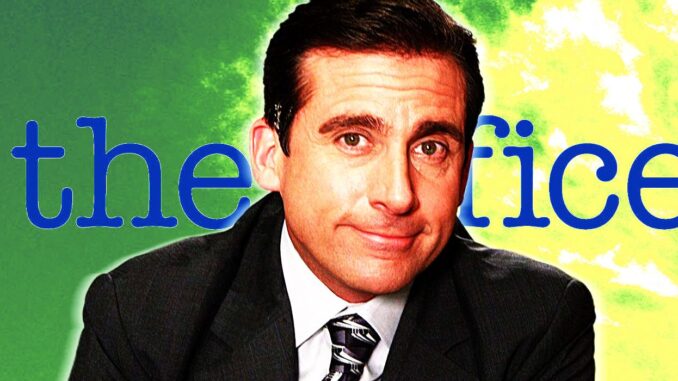
The Unspoken Goodbye: The Real Story Behind Steve Carell’s Exit from The Office
The Dunder Mifflin paper company, a mundane outpost of corporate drudgery, became a beloved pop culture phenomenon, largely on the back of one man: Michael Scott. His blend of cringe-worthy buffoonery, misguided sincerity, and occasional flashes of genuine heart made him the irreplaceable, often uncomfortable, heartbeat of The Office. So, when Steve Carell, the actor who breathed life into this iconic character, announced his departure after Season 7, the news sent shockwaves through the show's loyal fanbase. The prevailing narrative that quickly took hold was one of an actor eager to move on, bored of a character, or perhaps clashing with producers. Yet, the real story behind Carell's exit is far more nuanced, a poignant tale not of dramatic severance, but of subtle miscommunication, corporate oversight, and a quietly missed opportunity.
The common misconception painted a picture of an actor who, after seven seasons, had simply "had enough." One might imagine Carell, a rising film star, chafing under the demands of a network sitcom, seeking grander artistic challenges. Indeed, his burgeoning film career – with hits like Despicable Me and Dinner for Schmucks under his belt – lent credence to this theory. Audiences easily rationalized his departure: who could blame him for wanting to leave the office behind for the silver screen?
However, the truth, as revealed in later interviews and behind-the-scenes accounts, suggests a more passive, almost accidental, unraveling. Carell’s contract was simply up after the seventh season. During a radio interview in April 2010, when asked about his future, Carell offered a casual, almost offhand comment: "I think this will be my last year." It was a seemingly innocuous statement, perhaps intended as a feeler, a gentle probe to gauge the network's eagerness to retain him. It wasn't a demand, a threat, or even a firm decision, but a quiet whisper into what he might have hoped would be a receptive ear.
What followed, or rather what didn't follow, is the crux of the real story. The whisper was heard, but misinterpreted. The silence from NBC and Universal Television was deafening. There was no aggressive negotiation, no counter-offer, no passionate plea for him to stay. The corporate machinery, it seems, simply assumed his public comment was a definitive statement of intent. They took his "I think this will be my last year" not as an opening for dialogue, but as a closed door.
It's a classic case of taking for granted the very foundation upon which success is built. Steve Carell was Michael Scott, and Michael Scott was the narrative engine of The Office. Yet, rather than fighting tooth and nail to keep their star player, the network seemingly adopted a wait-and-see attitude, or perhaps, a misguided belief that the show's ensemble cast and established format could weather such a significant loss. One executive reportedly told Andy Greene, author of The Office: The Untold Story of the Greatest Sitcom of the 2000s, that the network didn't think it was "a big deal" if Carell left. This staggering underestimation of his value speaks volumes about the corporate blind spots that can afflict even the most successful enterprises.
Carell himself later clarified his position, expressing surprise and even a touch of disappointment at the network's inaction. "I said [it was my last year] in an interview and it was misconstrued," he revealed. "The story was that I didn’t want to do it anymore. And that wasn’t the truth." He had simply been pondering his future, openly considering the possibility of moving on, but was never presented with an alternative that might have swayed him. Had an offer been made, had a conversation truly begun, the outcome could have been entirely different.
The aftermath of Carell's exit served as a stark, undeniable testament to his irreplaceable role. The seasons that followed struggled to fill the void, experimenting with various guest stars and new management dynamics that never quite clicked. The show, while still capable of moments of brilliance, lost its central gravitational pull, its awkward, endearing heart. It limped along for two more seasons before finally concluding, a beloved series that, to many, never truly recovered from Michael Scott's bittersweet farewell.
In the end, the real story of Steve Carell's departure from The Office isn't a dramatic expose of ego or conflict. It's a quieter, more poignant narrative about unspoken desires, corporate complacency, and the subtle art of listening. It's a reminder that even in the cutthroat world of television, relationships matter, and sometimes, the loudest statements are not shouted, but merely whispered, waiting for a response that, tragically, never comes. Michael Scott drove away with Holly, finding his happy ending, but Dunder Mifflin, and indeed, The Office as we knew it, was never quite the same.